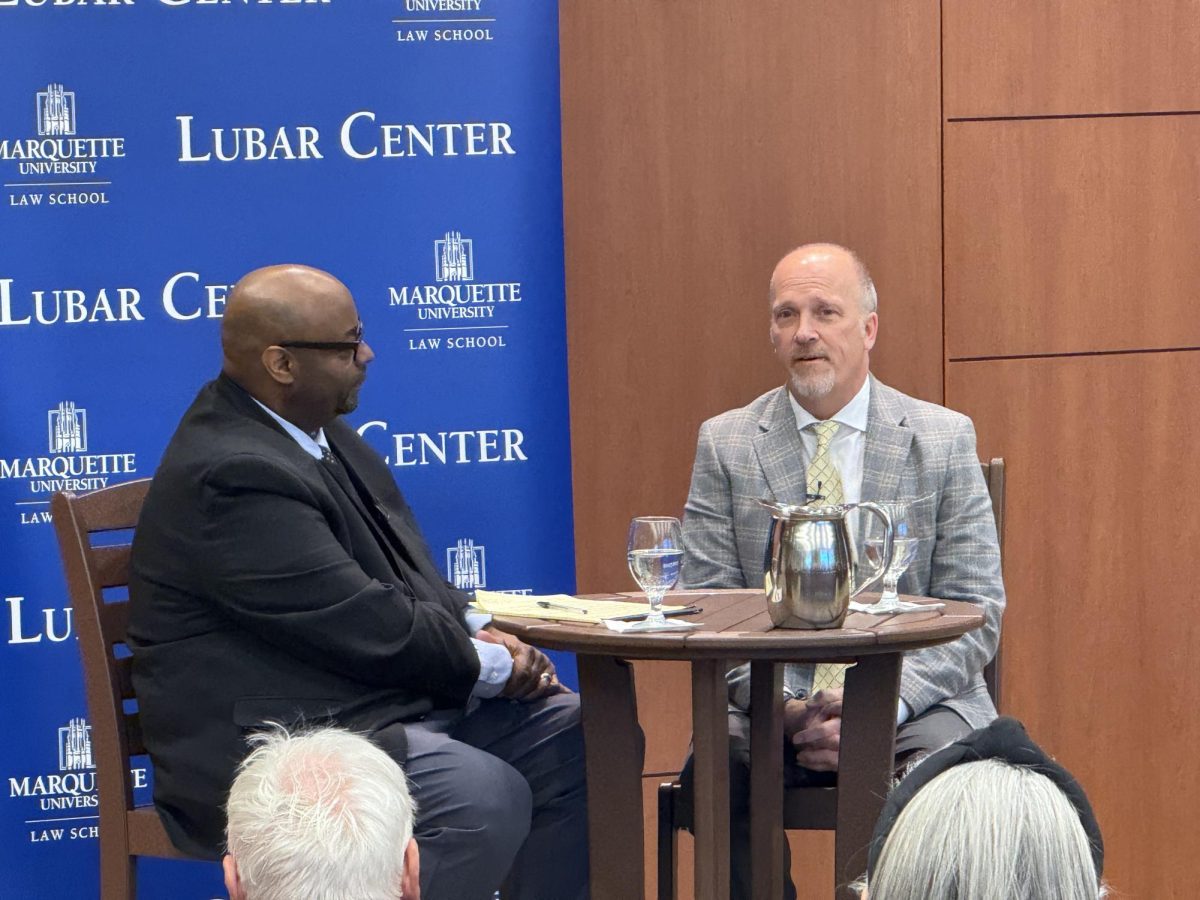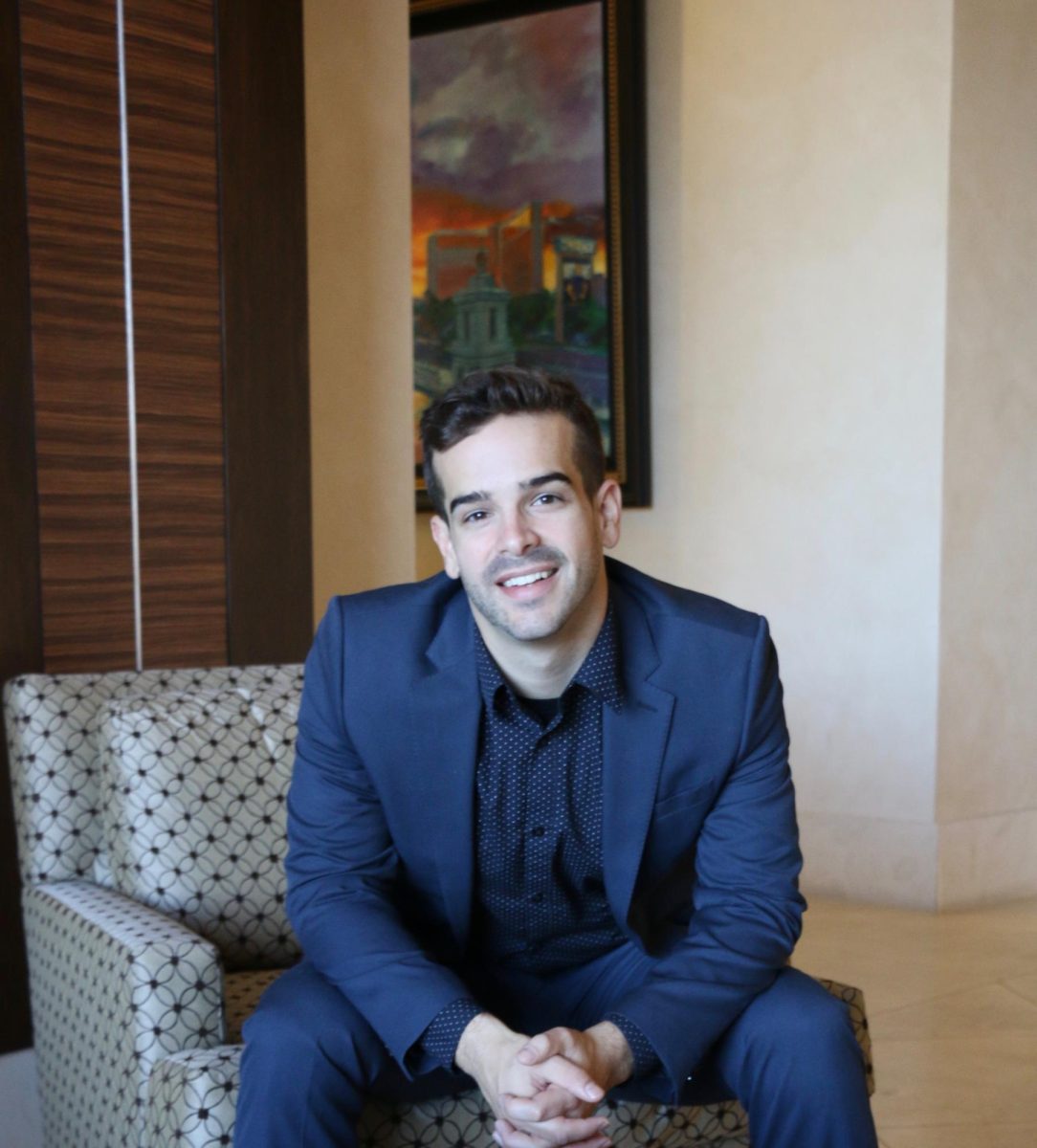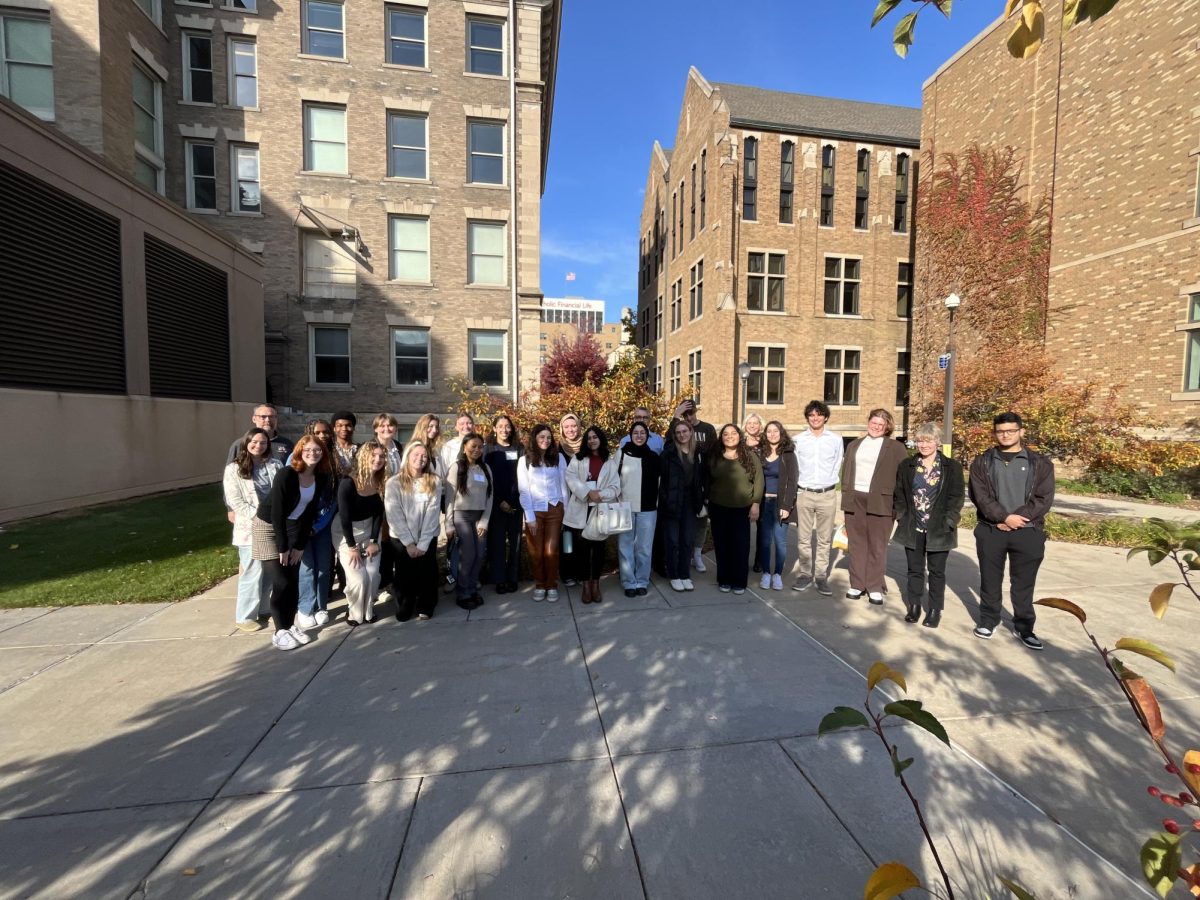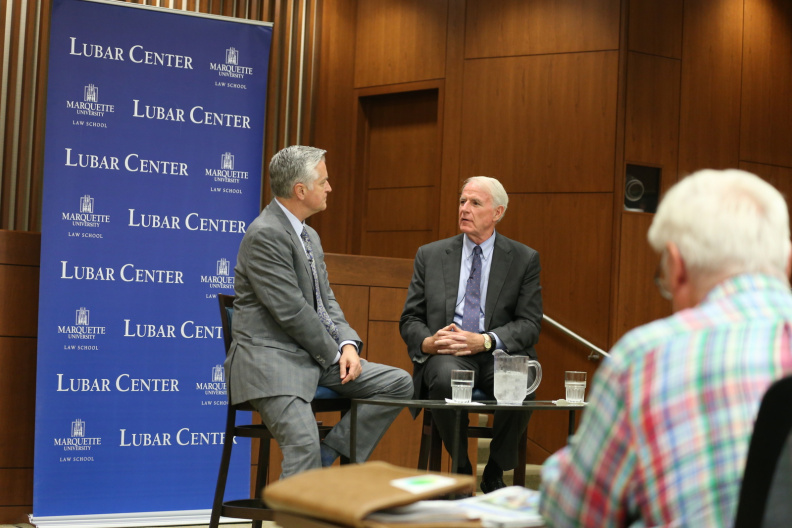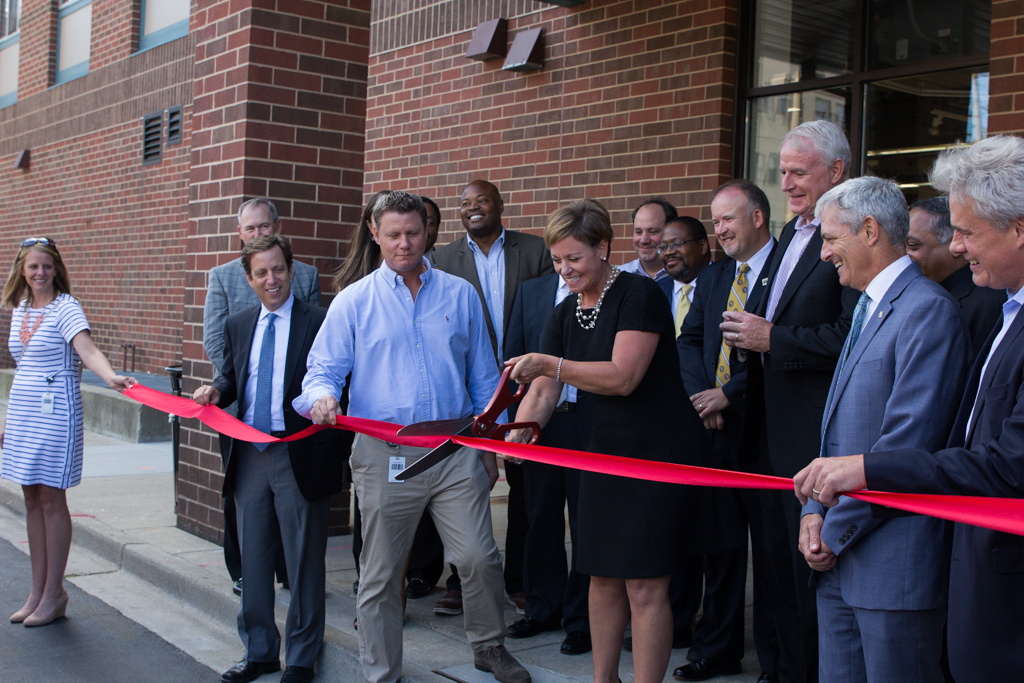
The Marquette Law School hosted a conference Monday called “Milwaukee 2015: Water, Jobs and the Way Forward,” featuring Gov. Jim Doyle, Mayor Tom Barrett and executives from companies with large stakes in Milwaukee.
Mike Gousha, distinguished fellow in law and public policy at Marquette Law School, hosted the three-part conference. He moderated two panels to begin and end the morning, with a speech from Doyle in between.
The panel discussions focused on utilizing the fresh water resources in Milwaukee in both the private and public sectors. Featured on the public sector panel was Barrett and Carlos Santiago, chancellor of University of Wisconsin-Milwaukee.
“Let’s talk about America’s fresh coast,” Barrett said. “Our comparative advantage is water.”
Attracting new companies to Milwaukee was a theme echoed by most panelists throughout the morning.
“In 2009, we look around the country and it becomes obvious that wet industries are our strong point,” Barrett said. “We can create jobs by luring companies here in areas where there is high unemployment and lower their water rates in exchange for creating jobs.”
During the private sector panel, executives from Badger Meter, Siemens Water Technologies and MillerCoors discussed various ways private companies could contribute to establishing Milwaukee as the international freshwater hub.
Barry Grossman, a panelist on the private sector panel, is a member of the Milwaukee 7 Water Council board of directors. The council includes members from business, academics and government who work to make the Milwaukee region a world water hub for freshwater research, economic development and education.
“We are not a leader in water technologies yet … but by 2015 we should be doing much better,” Grossman said. “We should be seeing more innovation, more technology, more patents. There is a vacuum here that we can fill. There is no North American hub for water technologies.”
Because Milwaukee has a large source of freshwater on its border, it offers large industrial users a reliable source of water that competitors like Atlanta cannot, Grossman said.
By focusing on three steps, Milwaukee and the rest of the state will be able to establish the infrastructure of a world water hub, Doyle said. Investing in education and research, supporting ongoing business while setting up an ambitious climate for new businesses and establishing a global profile are areas where Milwaukee needs to continue to push forward despite the hard economic times, he said.
“With Marquette University, Milwaukee School of Engineering and UW-Milwaukee, we can create engineering talent through investments to make Milwaukee truly the hub of water research and development,” Doyle said.
Federal funding for a School of Freshwater Science at UWM has been approved, but construction has yet to begin. Richard Meeusen, president and CEO of Milwaukee water meter company Badger Meter and co-chair of the Milwaukee 7 Water Council, said it is important to the future of water utilization and research in Milwaukee that the school be built within the next year. The school will be the first in the country dedicated exclusively to fresh water.
“We have two things going for us right now,” Santiago said. “We have good ideas coming from a lot of people and we have a lot of hope. Now it’s a matter of communicating, garnering wide political support for what we are doing. We are creating the partnerships (between universities, businesses, and other institutions) necessary to move forward.”


